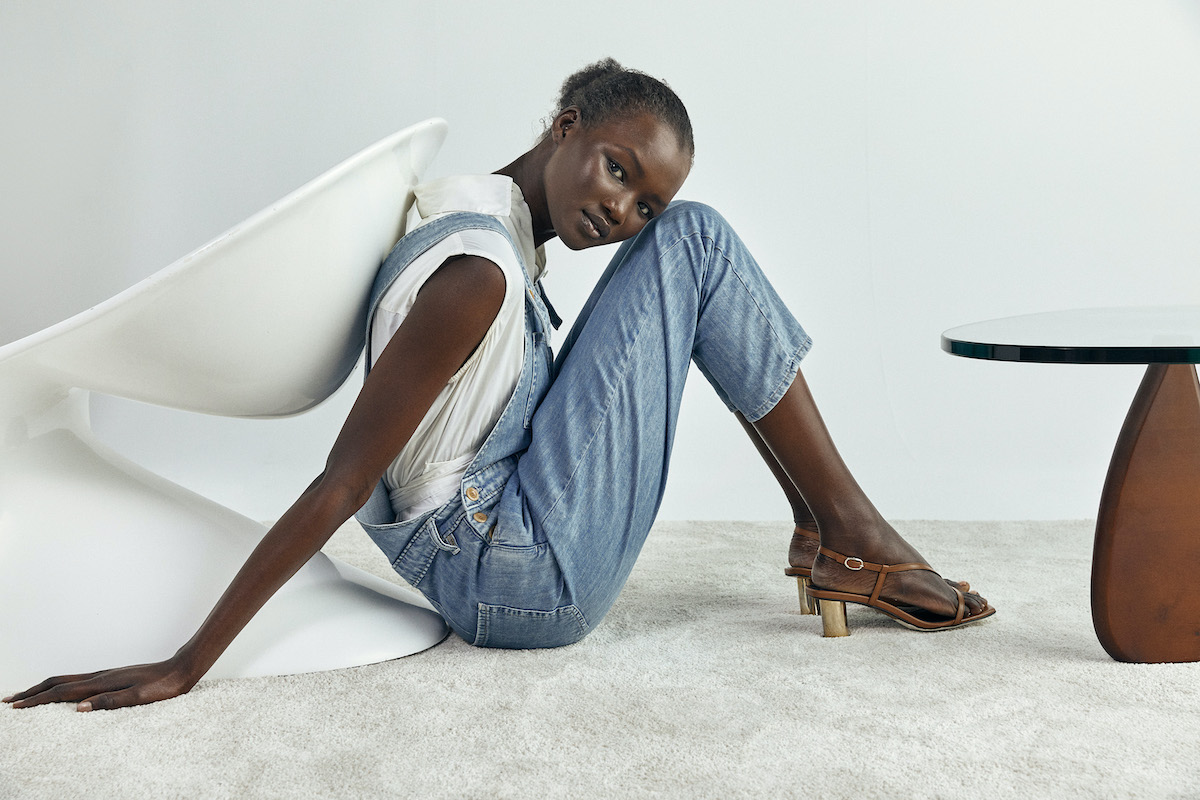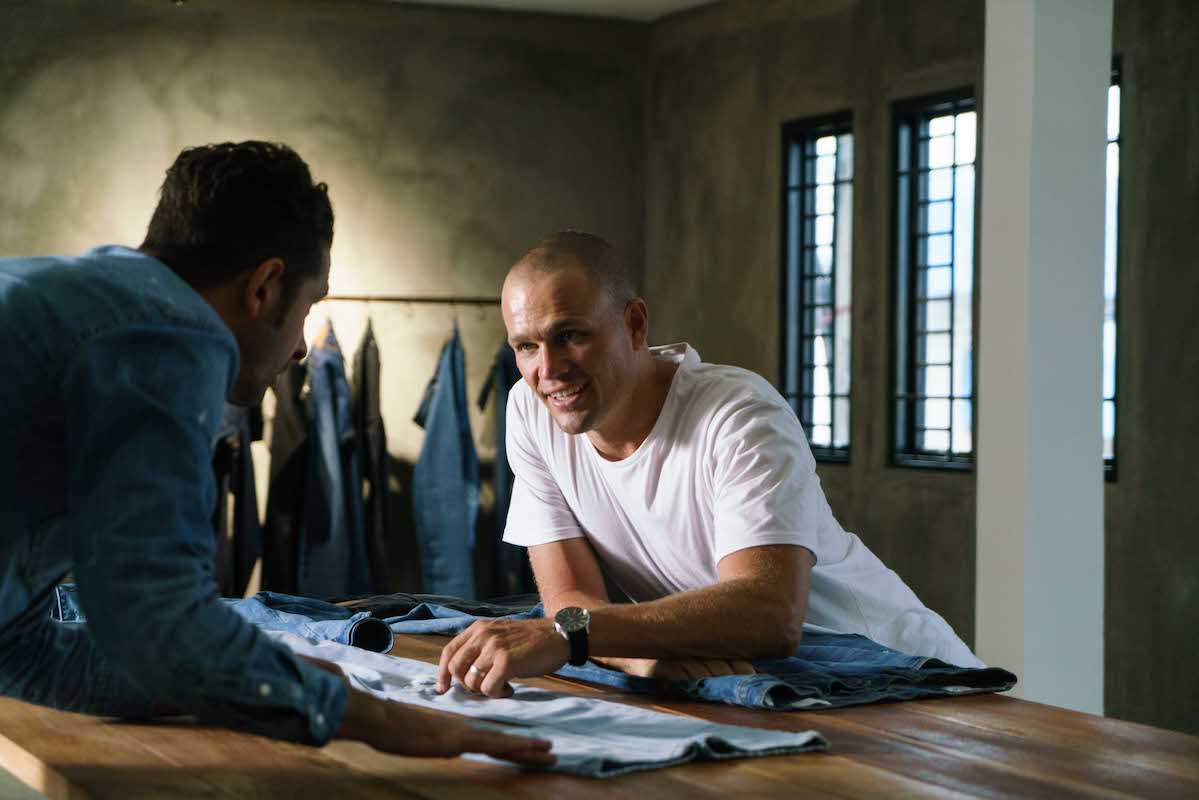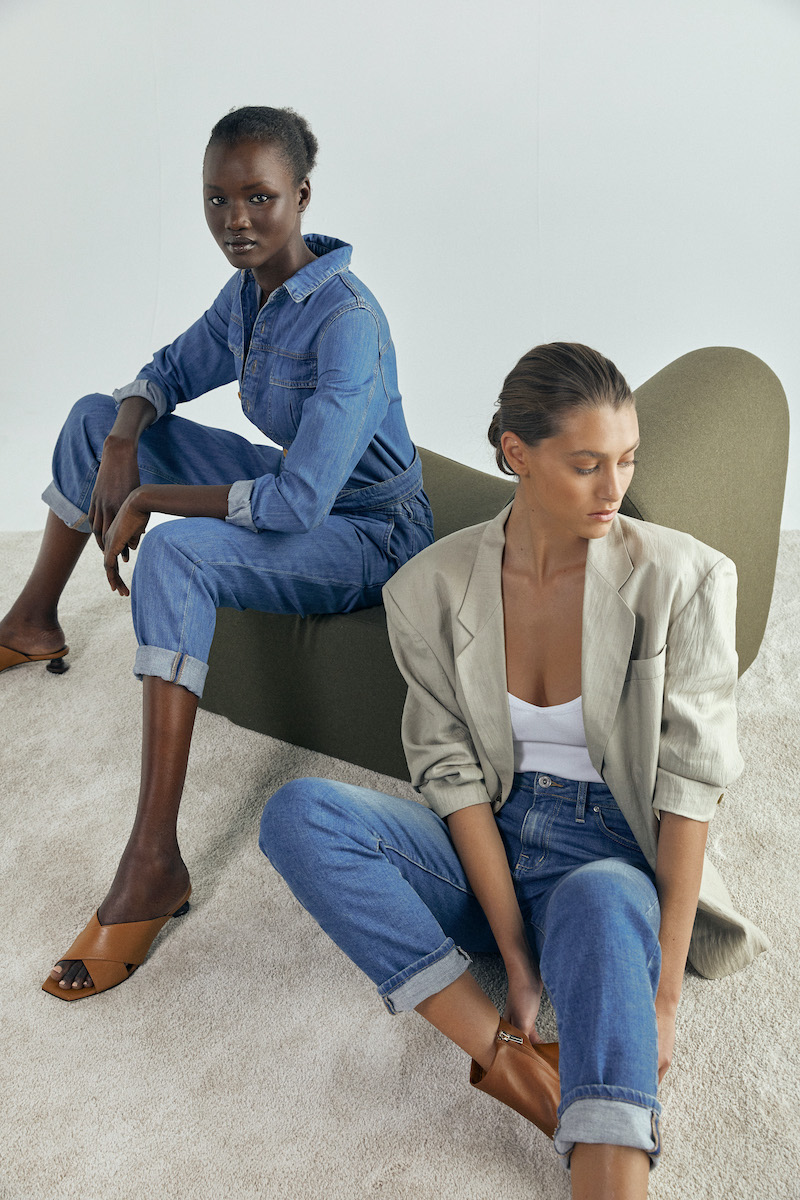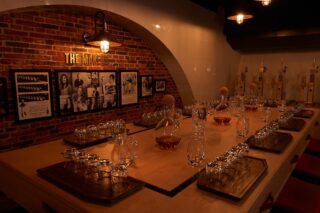This website uses cookies so that we can provide you with the best user experience possible. Cookie information is stored in your browser and performs functions such as recognising you when you return to our website and helping our team to understand which sections of the website you find most interesting and useful.
How a call to help survivors of human trafficking resulted in the world’s most sustainable denim brand: Outland Denim
By Juliet Herd | 2 October 2020 | Lifestyle, Style
Outland Denim founder James Bartle on how his fashion brand is designed to improve the lives of women and girls

A new wave of small fashion brands is smashing it out of the park when it comes to proving their planet-friendly and social credentials in the face of growing consumer demand.
Online searches for sustainability-related keywords such as ‘vegan leather’ and ‘organic cotton’ have jumped by nearly 50% (according to global fashion search platform Lyst), in the light of increasing public awareness of climate change and the social impact of clothing production on communities around the world. A recent UN Environment Programme study showed that 10% of all global carbon emissions are produced by the fashion industry.
Determined to clean up the industry’s act, these visionary brands are leading the way by using fashion as a force for positive good, whether through charity partnerships or, more fundamentally, by operating as social enterprises.
Outland Denim was set up four years ago with the express purpose of protecting the rights of the marginalised and vulnerable people who produce its clothes. “Social justice is the reason we exist,” says Australian-based founder James Bartle, who was awarded the Thomson Reuters 2020 Stop Slavery Enterprise Award for small and medium sized companies earlier this year. Described as the world’s most humanitarian denim brand, it trains and employs female victims of human trafficking and other human rights violations at its factory in Cambodia.
Outland Denim is also committed to cleaning up what is regarded as one of the dirtiest segments of the fashion industry, sourcing ethical and environmentally friendly materials for its denim. Its Amy Former jean is considered the most sustainable vintage-wash on the market, using 67% less water, 46% less energy, 83% less chemicals and 77% less worker impact than conventional vintage-wash jeans.
Says Bartle: It’s a really exciting time for the fashion industry in terms of environmental sustainability. There is a culture of innovation and collaboration and we can see a day when our collective successes in sustainability as an industry are not a point of difference but the norm.”
How did you come to set up Outland Denim and what was your vision?
We spent five years perfecting our product and our business model before launching as Outland Denim in late 2016. My goal was never to ‘rescue’ or to lift people out of exploitation, but rather give them all the tools they need to thrive through stable employment and career progression, financial freedom and education. We don’t empower our staff, they empower themselves. It was important to us to develop a supply chain of suppliers who share in our values and show leadership in sustainability. Our vision has always been to not only expand the Outland Denim model in order to achieve greater impact, but to also influence other businesses by demonstrating the success such a model can have.
Do you have a background in fashion?
No, and I didn't see myself working in the fashion industry at all! Before starting Outland Denim, I ran an extreme sports tour group that travelled around Australia promoting healthy lifestyle choices. Adapting my skill set to jean-making and setting up shop in a foreign country where I didn't speak the language, was a learning curve, but I think that once you have an appreciation for how things work and how to be flexible, you can move more easily into different fields. Outland was very hands-on from the beginning. >>
Rolls-Royce’s colour and trim designer shares the secrets of elegant automotive interiors

You’ve been described as the world’s most humanitarian denim brand – what does that mean to you?
To me, this reflects our founding values. Although sustainability is the number one topic of conversation in the fashion industry at the moment, the focus is generally skewed towards environmental initiatives. For us, social justice and protecting the people who make our clothes is really at our core; it’s the reason we exist. It wasn’t long before we learnt, though, that not only is denim one of the most difficult fashion areas to break into, it’s also one of the dirtiest. So, we set out to clear up the dirty side of denim, expanding our vision to create a business that was truly sustainable: Socially, environmentally and economically.
The Duchess of Sussex wore Outland Denim on her 2018 trip to Australia. Did this have an impact on your business?
It was a huge surprise, I was in shock. I was in Cambodia at the time and woke up that morning to my phone buzzing – I couldn’t believe it. The Harriet Black jean is still our most popular style two years later. But beyond sales, Meghan Markle’s support acted as an incredible and instant introduction to the wider industry for our young brand, leading to numerous wholesale enquiries and media mentions. You can’t put a price on the brand recognition nor the credibility that the Duchess is able to bestow on a small, socially-oriented enterprise such as ours. When you think about the fact that what we try to do is imbue our staff with a sense of dignity in their work and their value as human beings, then a royal endorsement such as this (while unofficial in the sense that we don't have a Kensington Palace seal or badge), is incredibly helpful. Our staff can't quite believe a Duchess is wearing their jeans.
The seamstresses in your Cambodian factory, Maeka, are former victims of sex trafficking – how did you come to set up the facilities there?
Before starting Outland Denim, I had the opportunity to travel with an anti-trafficking NGO to South-East Asia and see first-hand how human traffickers prey on vulnerable young girls. I will never forget seeing a little girl for sale and the fear and intimidation in her eyes. You can’t un-see that. We learnt that once a girl has been rescued and reintegrated into her family or community, a sustainable career path is vital for securing her future. The foundations of Outland Denim were laid as an avenue for training, employment and career progression for women who have experienced, or are at risk of, sex trafficking and other social injustices.
Today, our employees come from various backgrounds and receive cross-training in every element of the jean-making process; a living wage with the ability to save, and the opportunity to progress into leadership roles.
Can you describe the changes you’ve seen to these women’s lives?
Truly transformative. The moment I knew we were on the right track was when I talked to one of our first staff members, who told me she'd been able to build a home for her family who had previously lived under a plastic sheet. She was also able to buy back her sister from a man that owned her. It was then that I thought, ‘Well, I've reached my career high. >>
Flowerbx founder Whitney Bromberg Hawkings on the challenges of keeping her business blooming in lockdown

You’ve also opened the doors of Maeka to other brands – how does this work?
By offering the opportunity for other brands to produce using the socially, environmentally and economically sustainable facilities that we have established, we are able to both expand our business and our impact. The response has been extremely positive. Just this month we received our first sample, white-label t-shirts made by Maeka, which will be available for individual or wholesale order.
Tell us about your new capsule collection?
The ‘All In A Day’s Work’ collection is a blend of utilitarian design with modern elements inspired by vintage workwear, broken up into smaller capsule releases as part of our COVID-19 pivot. We’ve also launched our first 100% vegan collection ‘State of Being’ as animal rights are close to the heart of many Outland Denim customers. In transitioning our leather brand patches to a vegan alternative, using Jacron paper, we wanted to be able to cater to their values while choosing a material and supplier that could also live up to our high expectations.
How has consumer awareness of sustainability grown since you started?
Consumers take sustainable fashion a lot more seriously now than when we first started out eight years ago; it was more a niche conversation happening amongst members of the fashion community, and perhaps a bit elitist, but there is a lot more education and awareness now.”
What next for Outland Denim?
The coming months are set to be really exciting and very busy. In addition to releasing our white-label t-shirts available for other brands, we are expanding beyond denim into other garments and fabrics. We are also preparing a number of brand collaborations to be announced soon, and continuing our research and investment into circularity and supply chain monitoring. But that’s just in the short term! In the long term, we hope to take the Outland Denim business model and use it to create true, measurable, generational social change in vulnerable communities around the world.







